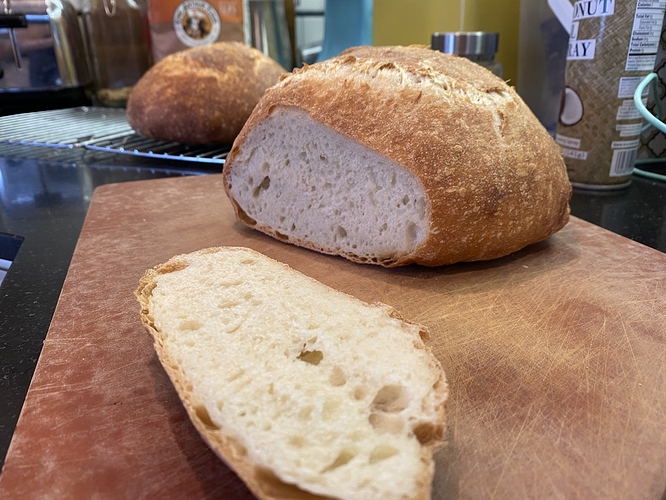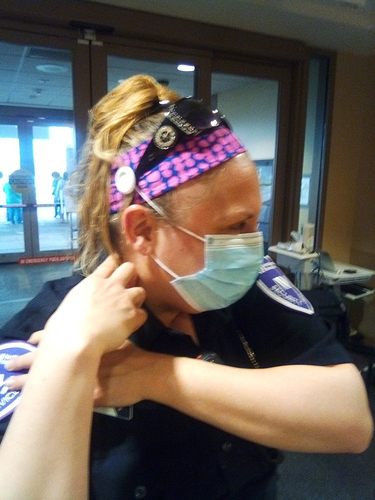-
Stick to a routine. Go to sleep and wake up at a reasonable time, write a schedule that is varied and includes time for work as well as self-care.
-
Dress for the social life you want, not the social life you have. Get showered and dressed in comfortable clothes, wash your face, brush your teeth. Take the time to do a bath or a facial. Put on some bright colors. It is amazing how our dress can impact our mood.
-
Get out at least once a day, for at least thirty minutes. If you are concerned of contact, try first thing in the morning, or later in the evening, and try less traveled streets and avenues. If you are high risk or living with those who are high risk, open the windows and blast the fan. It is amazing how much fresh air can do for spirits.
-
Find some time to move each day, again daily for at least thirty minutes. If you don’t feel comfortable going outside, there are many YouTube videos that offer free movement classes, and if all else fails, turn on the music and have a dance party!
-
Reach out to others, you guessed it, at least once daily for thirty minutes. Try to do FaceTime, Skype, phone calls, texting—connect with other people to seek and provide support. Don’t forget to do this for your children as well. Set up virtual playdates with friends daily via FaceTime, Facebook Messenger Kids, Zoom, etc—your kids miss their friends, too!
-
Stay hydrated and eat well. This one may seem obvious, but stress and eating often don’t mix well, and we find ourselves over-indulging, forgetting to eat, and avoiding food. Drink plenty of water, eat some good and nutritious foods, and challenge yourself to learn how to cook something new!
-
Develop a self-care toolkit. This can look different for everyone. A lot of successful self-care strategies involve a sensory component (seven senses: touch, taste, sight, hearing, smell, vestibular (movement) and proprioceptive (comforting pressure). An idea for each: a soft blanket or stuffed animal, a hot chocolate, photos of vacations, comforting music, lavender or eucalyptus oil, a small swing or rocking chair, a weighted blanket. A journal, an inspirational book, or a mandala coloring book is wonderful, bubbles to blow or blowing watercolor on paper through a straw are visually appealing as well as work on controlled breath. Mint gum, Listerine strips, ginger ale, frozen Starburst, ice packs, and cold are also good for anxiety regulation. For children, it is great to help them create a self-regulation comfort box (often a shoe-box or bin they can decorate) that they can use on the ready for first-aid when overwhelmed.
-
Spend extra time playing with children. Children will rarely communicate how they are feeling, but will often make a bid for attention and communication through play. Don’t be surprised to see therapeutic themes of illness, doctor visits, and isolation play through. Understand that play is cathartic and helpful for children—it is how they process their world and problem solve, and there’s a lot they are seeing and experiencing in the now.
-
Give everyone the benefit of the doubt, and a wide berth. A lot of cooped up time can bring out the worst in everyone. Each person will have moments when they will not be at their best. It is important to move with grace through blowups, to not show up to every argument you are invited to, and to not hold grudges and continue disagreements. Everyone is doing the best they can to make it through this.
-
Everyone find their own retreat space. Space is at a premium, particularly with city living. It is important that people think through their own separate space for work and for relaxation. For children, help them identify a place where they can go to retreat when stressed. You can make this place cozy by using blankets, pillows, cushions, scarves, beanbags, tents, and “forts”. It is good to know that even when we are on top of each other, we have our own special place to go to be alone.
-
Expect behavioral issues in children, and respond gently. We are all struggling with disruption in routine, none more than children, who rely on routines constructed by others to make them feel safe and to know what comes next. Expect increased anxiety, worries and fears, nightmares, difficulty separating or sleeping, testing limits, and meltdowns. Do not introduce major behavioral plans or consequences at this time—hold stable and focus on emotional connection.
-
Focus on safety and attachment. We are going to be living for a bit with the unprecedented demand of meeting all work deadlines, homeschooling children, running a sterile household, and making a whole lot of entertainment in confinement. We can get wrapped up in meeting expectations in all domains, but we must remember that these are scary and unpredictable times for children. Focus on strengthening the connection through time spent following their lead, through physical touch, through play, through therapeutic books, and via verbal reassurances that you will be there for them in this time.
-
Lower expectations and practice radical self-acceptance. This idea is connected with #12. We are doing too many things in this moment, under fear and stress. This does not make a formula for excellence. Instead, give yourself what psychologists call “radical self acceptance”: accepting everything about yourself, your current situation, and your life without question, blame, or pushback. You cannot fail at this—there is no roadmap, no precedent for this, and we are all truly doing the best we can in an impossible situation.
-
Limit social media and COVID conversation, especially around children. One can find tons of information on COVID-19 to consume, and it changes minute to minute. The information is often sensationalized, negatively skewed, and alarmist. Find a few trusted sources that you can check in with consistently, limit it to a few times a day, and set a time limit for yourself on how much you consume (again 30 minutes tops, 2-3 times daily). Keep news and alarming conversations out of earshot from children—they see and hear everything, and can become very frightened by what they hear.
-
Notice the good in the world, the helpers. There is a lot of scary, negative, and overwhelming information to take in regarding this pandemic. There are also a ton of stories of people sacrificing, donating, and supporting one another in miraculous ways. It is important to counter-balance the heavy information with the hopeful information.
-
Help others. Find ways, big and small, to give back to others. Support restaurants, offer to grocery shop, check in with elderly neighbors, write psychological wellness tips for others—helping others gives us a sense of agency when things seem out of control.
-
Find something you can control, and control the heck out of it. In moments of big uncertainty and overwhelm, control your little corner of the world. Organize your bookshelf, purge your closet, put together that furniture, group your toys. It helps to anchor and ground us when the bigger things are chaotic.
-
Find a long-term project to dive into. Now is the time to learn how to play the keyboard, put together a huge jigsaw puzzle, start a 15 hour game of Risk, paint a picture, read the Harry Potter series, binge watch an 8-season show, crochet a blanket, solve a Rubix cube, or develop a new town in Animal Crossing. Find something that will keep you busy, distracted, and engaged to take breaks from what is going on in the outside world.
-
Engage in repetitive movements and left-right movements. Research has shown that repetitive movement (knitting, coloring, painting, clay sculpting, jump roping etc) especially left-right movement (running, drumming, skating, hopping) can be effective at self-soothing and maintaining self-regulation in moments of distress.
-
Find an expressive art and go for it. Our emotional brain is very receptive to the creative arts, and it is a direct portal for release of feeling. Find something that is creative (sculpting, drawing, dancing, music, singing, playing) and give it your all. See how relieved you can feel. It is a very effective way of helping kids to emote and communicate as well!
-
Find lightness and humor in each day. There is a lot to be worried about, and with good reason. Counterbalance this heaviness with something funny each day: cat videos on YouTube, a stand-up show on Netflix, a funny movie—we all need a little comedic relief in our day, every day.
-
Reach out for help—your team is there for you. If you have a therapist or psychiatrist, they are available to you, even at a distance. Keep up your medications and your therapy sessions the best you can. If you are having difficulty coping, seek out help for the first time. There are mental health people on the ready to help you through this crisis. Your children’s teachers and related service providers will do anything within their power to help, especially for those parents tasked with the difficult task of being a whole treatment team to their child with special challenges. Seek support groups of fellow home-schoolers, parents, and neighbors to feel connected. There is help and support out there, any time of the day—although we are physically distant, we can always connect virtually.
-
“Chunk” your quarantine, take it moment by moment. We have no road map for this. We don’t know what this will look like in 1 day, 1 week, or 1 month from now. Often, when I work with patients who have anxiety around overwhelming issues, I suggest that they engage in a strategy called “chunking”—focusing on whatever bite-sized piece of a challenge that feels manageable. Whether that be 5 minutes, a day, or a week at a time—find what feels doable for you, and set a time stamp for how far ahead in the future you will let yourself worry. Take each chunk one at a time, and move through stress in pieces.
-
Remind yourself daily that this is temporary. It seems in the midst of this quarantine that it will never end. It is terrifying to think of the road stretching ahead of us. Please take time to remind yourself that although this is very scary and difficult, and will go on for an undetermined amount of time, it is a season of life and it will pass. We will return to feeing free, safe, busy, and connected in the days ahead.
-
Find the lesson. This whole crisis can seem sad, senseless, and at times, avoidable. When psychologists work with trauma, a key feature to helping someone work through said trauma is to help them find their agency, the potential positive outcomes they can effect, the meaning and construction that can come out of destruction. What can each of us learn here, in big and small ways, from this crisis? What needs to change in ourselves, our homes, our communities, our nation, and our world?




